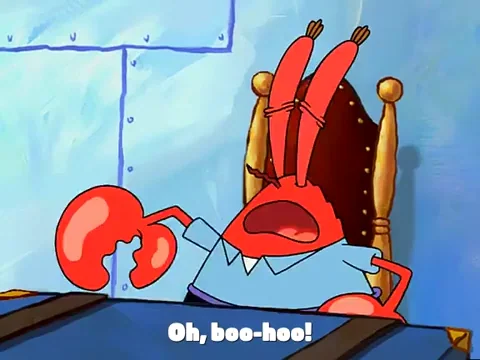Originally published at: Twitter valued at one-third what Musk paid for it last year | Boing Boing
…
Two thirds down, one more to go!

To be fair, Twitter was probably worth only one-third what Musk paid for it even when he bought it.
I’m not going to make a joke about the fanbois. Even those idiots are too ashamed to show their face in these topics after years of praising their God-emperor’s brilliance.
1/3rd value is really overestimating things but i am biased. Also if i was journalist i would try my hardest to make a case for not keeping an active Twitter account, and posting stuff elsewhere.
How’s that shiny new CEO doing? Haven’t heard much about Yaccarino’s exciting new plans for the company as yet… [snarkity snark snark]
Damn, give her a minute.She basically walked into this.

We can do better! The fediverse awaits you. Mastodon, Calckey, Misskey, Pleroma, Pixelfed, Lemmy. Scary new names for an exciting new future!

If lived in Antarctica and could game online with a starlink connection he would be my hero, but I don’t so , meh.
There’s quite a lot packed into that “professionally obligated”. For some of us, that’s been the question for a while now: are journalists obligated, and who’s obliging them, and could they maybe not?
I’m not denying forces are at work. Clearly, reporters at the Guardian aren’t given a choice whether to report tweets as news, or whether their copy gets sprinkled with Twitter shitboxes. But these choices are getting made somehow. And even if they don’t have a choice, I also don’t see much sign that media people want to put the pipe down.
My guess is, editors like it because it makes “news” cheaper and easier to manipulate; and workers do it for the same reason they do internships and unpaid overtime and work for “exposure”,
But the bottom line is, no one has ever subscrube to the NYT or the Guardian to find out what’s happening on Twitter. Lots of media consumers would be entirely happy to miss out on that.
Ah, the old Fuckwit’s Bank Account Gambit. Classic 5 dimensional chess play, dude’s a genius. Your move, The Haters.
I guess they don’t have any time left after manufacturing yet another transphobic moral panic.
Why so pessimistic?
Can’t the value go negative?
The Darkest Timeline. I love that episode so much.
I pray to FSM for the death of Twitter for exactly this reason. In many ways, it ruined journalism. Half of all news stories now are just “here are some tweets I found”. Even TV news is frequently reduced to literally reading tweets on air. If Twitter were somehow representative of the population, this might make a kind of sense. But it isn’t. A tiny percentage of people use it, and of those (according to a study I saw*) 80% of the the content is generated by 5% of the users. So it’s an extremely rarified set of opinions representing nobody beyond a few individuals that the Algorithm™ has selected.
How this became the bedrock of all journalism, I will never understand.
*Take this stat with a grain of salt, as I can no longer find a reference for it
This past-perfect tense of the verb “subscribe” tickles me. I think it should be used more widely.
Oh I’d say it was worth at least half of its purchase price back then!
I genuinely hope we are close to moving past the era of “passively polling” the internet and treating it anything meaningful.
As @EylerWerve pointed out on the Little Mermaid racist review bombing thread, it is the weakest form of data gathering, and we have actual refined tools for the job of polling, Twitter News™ is the same lazy, cheap-ass non-method of arm-chairing social science. Particularly when the headline is “Twitter reacts to” or “Twitter is in an uproar” as if it’s a collective entitiy.
Unfortunately it seems like Twitter in some ways benefits from the bias that people have toward a “person saying something” (anecdote) vs anonymous data points in a survey, because each Twitter user can be perceived a “person” with a visual presence and a handle. It’s the worst of quantitative data combined with the worst of qualitative data delivered in a way that makes both readily available and also worse than meaningless.